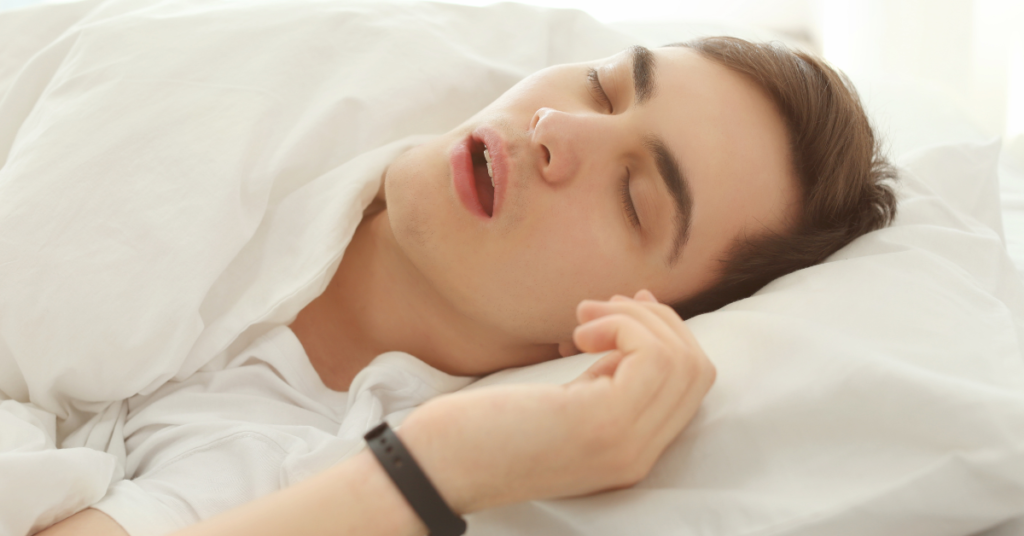Blogs

The Advantages of Dental Sleep Medicine Over Alternative Medicine
Introduction
Obstructive sleep apnea (OSA) is one sleep disorder that can significantly affect general health and quality of life. Alternative therapies and conventional medical interventions are among the options available to persons in need of therapy. Of these, dental sleep medication has proven to be a very successful and scientifically supported remedy. Let’s examine why, when it comes to treating sleep disorders, Obstructive sleep apnea is superior to alternative medicine.
Rooted in Scientific Research
Upper Airway Resistance Syndrome (UARS) happens when the airway narrows during sleep, leading to increased effort in breathing without a total blockage. Unlike sleep apnea, where breathing completely stops, UARS presents as subtle breathing challenges that can still greatly affect sleep quality. Dr. Christian Guilleminault and his team at Stanford University first described UARS in 1993, identifying it in patients who suffered from excessive daytime sleepiness but did not fulfill the criteria for sleep apnea. This important finding shed light on why some individuals with significant sleep issues had normal results in sleep studies.
Symptoms and Diagnosis
Dental sleep medicine is a branch of dentistry that focuses on treating breathing issues associated with Dental sleep apnea, mostly with specially designed dental appliances. Healthcare regulators such as the FDA have approved these appliances, which are created with evidence-based methods. On the other hand, a lot of alternative therapies are not well-supported by science. Although beneficial for some, methods like acupuncture or herbal therapies sometimes rely on anecdotal data rather than clinical investigations.
Tailored to Individual Needs
The individualized aspect of dental sleep medication is one of its main benefits. Every patient receives a customized oral appliance, guaranteeing maximum comfort and efficiency. Alternative approaches frequently take a one-size-fits-all stance, which might not take into account the distinct physiological or anatomical elements causing a patient’s sleep issue.
Proven Effectiveness for Sleep Apnea
MSE(Maxillary Skeletal expander) is clinically proven Dental sleep apnea treatment to reduce snoring and treat mild to moderate obstructive sleep apnea. Alternative treatments like yoga, meditation, or essential oils may promote relaxation but are unlikely to resolve the airway obstruction that characterizes sleep apnea.
Non-Invasive and Comfortable
A non-invasive substitute for surgical procedures such as uvulopalatopharyngoplasty (UPPP) is dental sleep medication. Compared to bulky devices like CPAP machines, oral appliances are compact, portable, and simple to use. Numerous other approaches, such nasal irrigation or dietary modifications, necessitate continuous dedication and lifestyle adjustments that could not immediately address the physiological root of the issue.
Faster, Measurable Results
In the short term, patients who use dental sleep aids frequently report observable changes. Common results include less snoring, higher-quality sleep, and increased energy during the day. Alternative therapies may be beneficial for general health, but they frequently take longer to manifest and might not produce quantifiable gains in sleep-related indicators.
Minimal Side Effects
Oral appliances used in dental sleep medicine have fewer side effects than pharmaceutical treatments or invasive procedures, and they are typically transient and readily controlled. Alternative treatments, despite their apparent safety, can occasionally worsen underlying diseases or conflict with existing prescriptions.
Types of Oral Appliances for Sleep Apnea
- Mandibular Advancement Devices (MADs):
- Most common type.
- Repositions the lower jaw (mandible) slightly forward to keep the airway open.
- Custom-fitted by a dentist or dental specialist for comfort and effectiveness.
- Tongue Retaining Devices (TRDs):
- Hold the tongue in a forward position using suction to prevent it from blocking the airway.
- Typically used for patients who cannot tolerate MADs or have specific anatomical considerations.
Maxillary Skeletal Expander (MSE)
A state-of-the-art orthodontic tool called a Maxillary Skeletal Expander (MSE) is used to enlarge the maxilla, or upper jaw, in patients with transverse maxillary insufficiency.The role of the maxillary skeletal expander in treating obstructive sleep apnea (OSA), especially in patients with maxillary constriction, is becoming more well acknowledged. The MSE can address anatomical factors that contribute to sleep-disordered breathing and enhance airflow dynamics by enlarging the maxilla. MSE can be used to treat sleep apnea in the following ways:
- Increases Airway Volume:
- Corrects Maxillary Constriction:
- Improves Nasal Breathing:
- Non-Surgical Alternative:
Conclusion
While alternative medicine can complement mainstream approaches to improve overall well-being, it is often insufficient as a standalone treatment for sleep disorders like obstructive sleep apnea. Dental sleep medicine is a great option for people looking for efficient, non-invasive solutions to sleep-related problems since it blends scientific rigor, individualized treatment, and shown outcomes.To find out how this cutting-edge field might enhance your sleep and your life. If you suffer from sleep apnea or persistent snoring, speak with an Airway focussed Orthodontist.
